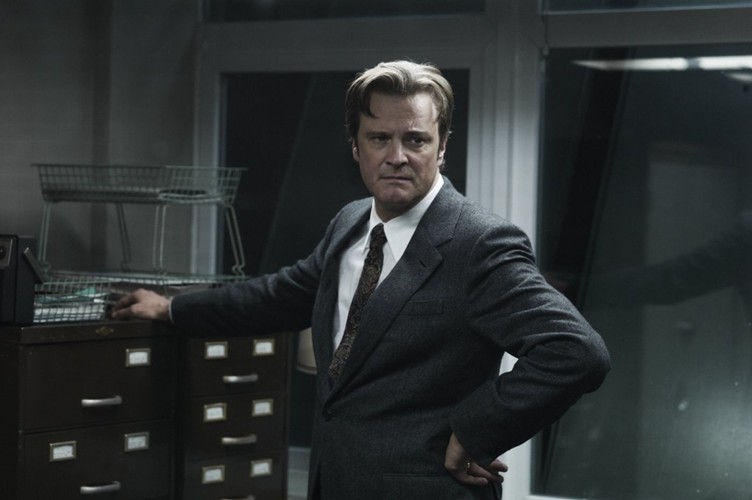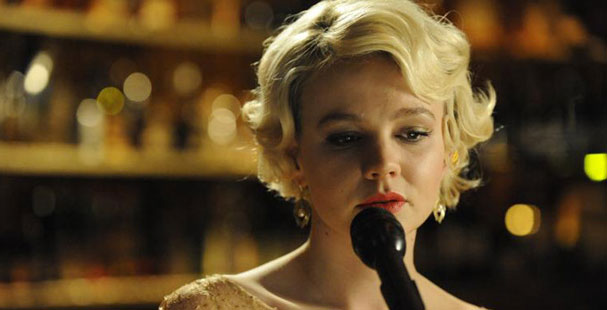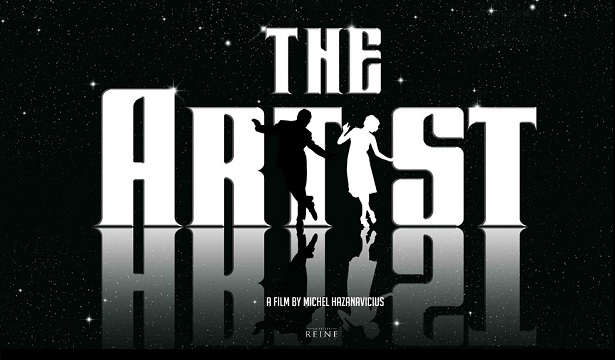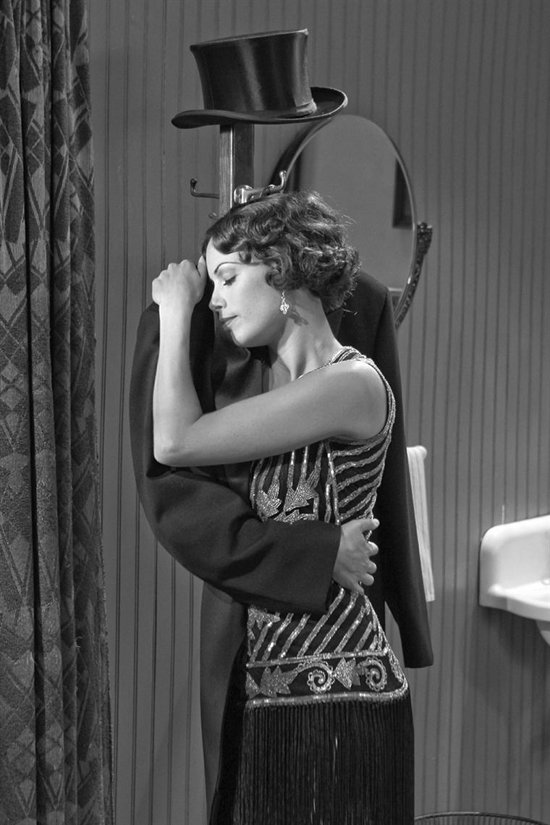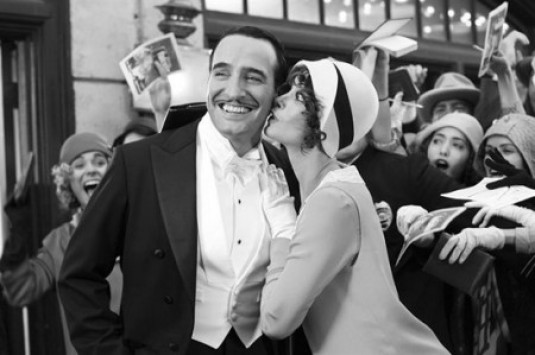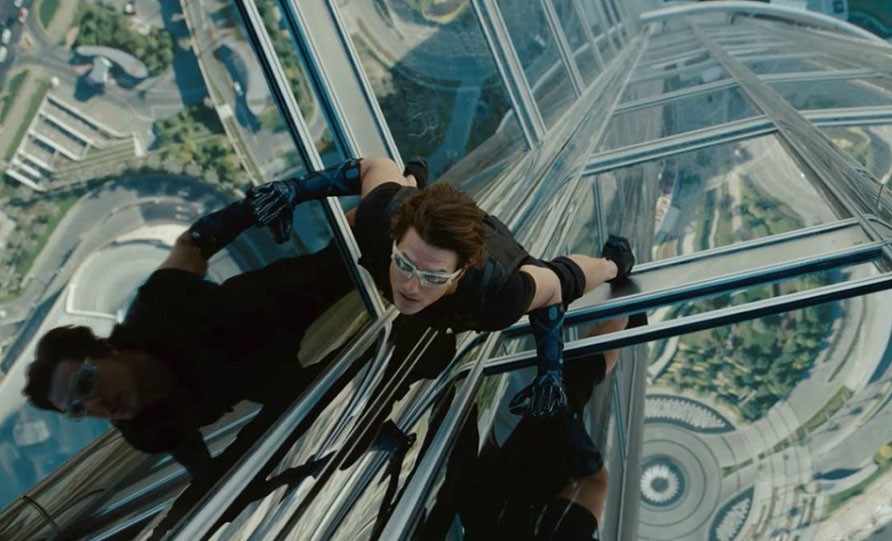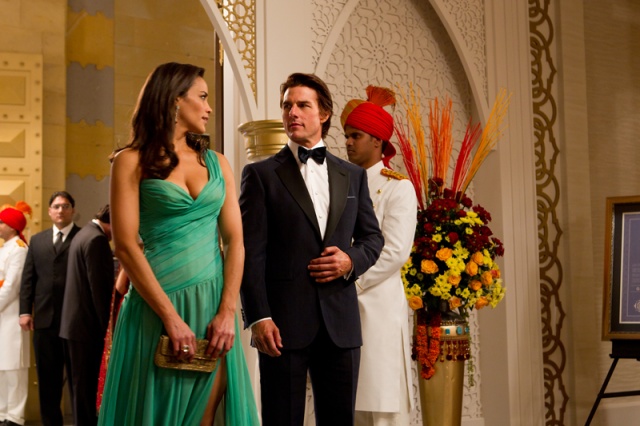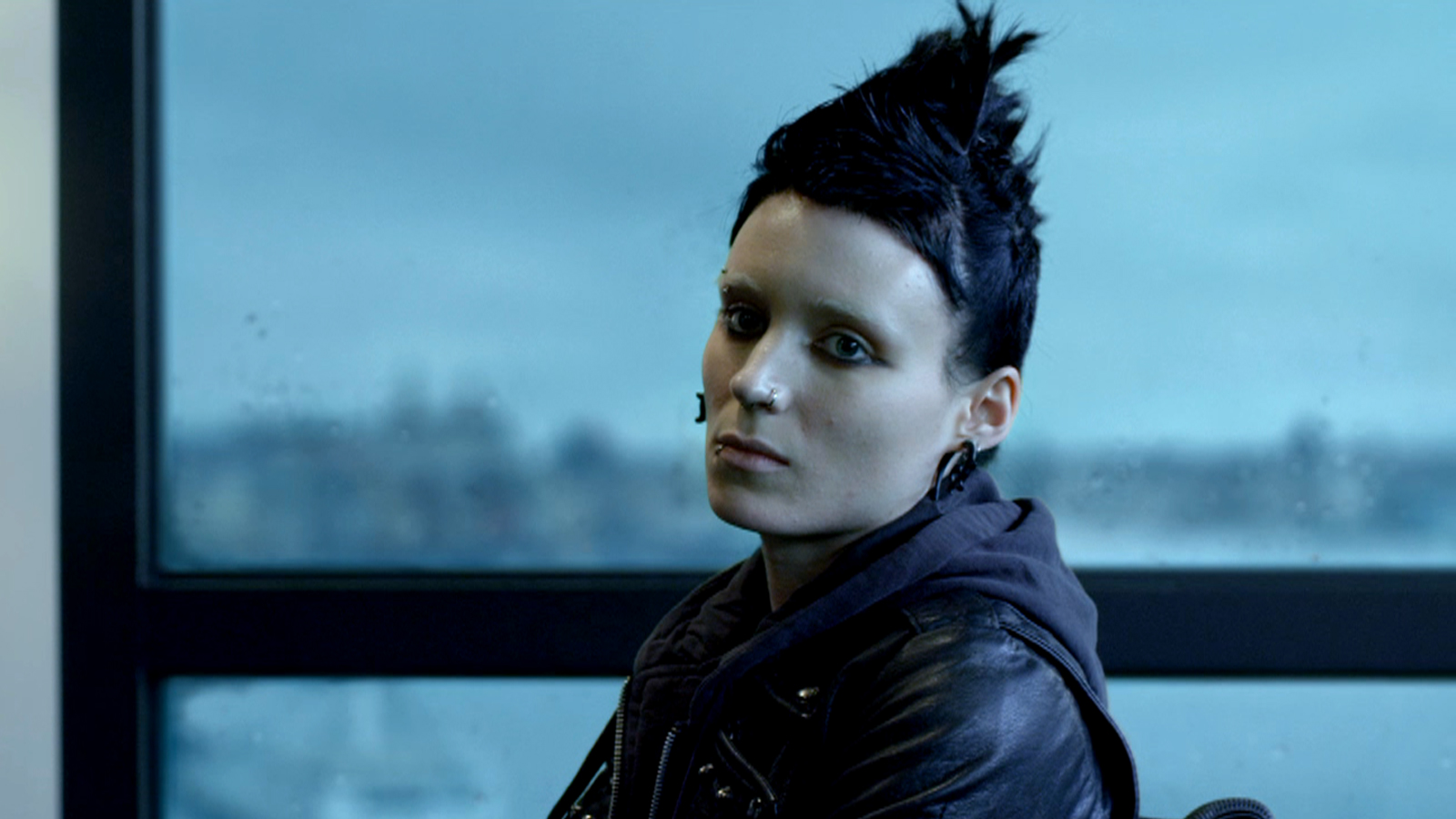"The Descendants" and "A Separation"

Here are two films that refuse to render anyone a stereotype. And in that refusal they give us moments when we see ourselves in people whom we might at first not even like. Nobody is only who they seem to be on first impression. As it happens, both are about dysfunctional families; both feature teenage daughters and train their eye on very specific though rather disparate places: Hawaii and Tehran.
The Descendants
I always enjoy George Clooney. I like the way he undercuts his leading-man good looks with a sense of humor about himself. Here he plays Matt, an at-sea father of two girls, a teenager, Alexandra (Shailene Woodley) and a prepubescent, Scottie (Amara Miller), who's suddenly rendered a single dad when a boating accident leaves his wife, Elizabeth (Patricia Hastie) in a coma. The live on The Big Island. The film gives us a feel for what it's like "living in paradise" as a local, not a tourist. The men really do wear Hawaiian shirts (or, I suppose, just "shirts" over there, same as French onion soup is just "onion soup" in Paris). Hopping between the islands seems like a more-or-less everyday part of life.
Descended from a Hawaiian queen and a wealthy banker, Matt and his cousins are the trustees of a huge parcel of gorgeous land on one of the smaller islands. Modern times force them to orchestrate a sell-off. Various corporate outfits come a-courting.
Clooney is moving here, and in a way I've haven't seen him be before. Matt is bobbing on a sea of emotion that suddenly becomes a maelstrom, and that is because of a blindsiding revelation: shortly after the doctors tell him there's nothing they can do to bring Elizabeth back, he learns--and from Alexandra--that she had been cheating on him. She'd planned to leave him. The extraordinary thing is he decides that everyone who loved her should have a chance to say goodbye...including the guy with whom she was having an affair. With family in tow, Matt sets off to track him down.
The scene where he says goodbye to Elizabeth felt very personal to me. I won't tell you what he says to her, except to say that I heard in his conflicted words the things that, with the benefit of years and hindsight, I would have liked to have said to my ex if I'd ever had a chance to say goodbye. (She's not dead, she just ran off with another guy. So I guess it's not really the same, is it?)

Director Alexander Payne and Clooney aren't afraid to allow Matt to be an asshole at times, which is to say, to be human. That's what I like about Payne's work: he cuts the heartfelt and the sentimental with the crass, the sweet with the tart. There is always a moment or two in his films when you're brought up short by how pungently real he keeps it. The result is that the moments of sentiment also feel honest, and earned. In the past he sometimes hasn't gotten the contrast quite right, with the result that the whole thing felt a bit curdled. While "The Descendants" is not as funny as some of his past work, to my taste he gets the tone right here.
The revelation here is Shailene Woodley. At first impression she appears to be a don't-give-a-shit, sullen, drug-and-drink-sodden drip: in other words, a good, typical American teenager. But she turns out to have a real head on her shoulders. She's so resourceful: she knows exactly what to do in situations where the middle-aged man is at sea. Turns out they need her, and she surprises herself by how much she ends up, if not exactly needing, then at least tolerating them. And from a teenager, that's about as true an expression of love as you're going to get.
I like the scene where dad doesn't even know where to begin when young Scottie reveals that, during a visit to one of her little friend's house, her friend had tuned the TV to porn. She didn't see any of it; still, he's stammering when Alexandra jumps in: your friend is a twat who's just going to turn out to be a methhead and get used by a bunch of stupid boys. You can see dad in the background wavering, as if to say, well, I mean, come on, that's a little...but it's too late, Alexandra is off. Repeat after me, she says to her sister: she's a twat. The little girl runs off yelling "twat, twat, twat".
Alexandra's constantly-in-tow boyfriend, Sid (played just right by Nick Krause), who at first blush seems to be a snide little asshole of the "bro" persuasion, turns out to be a really good kid. I like the way he starts calling Clooney "boss".
And then there is Robert Forster as Elizabeth's father. On first impression he is gruff, homophobic, hostile, offensive. But then his wife is led into the room; we observe that she is lost to Alzheimer's, and how patiently he attends to her. And in the hospital, the family cracks the door and watches this man, this man who in his hurt has been hurtful to them, hover over his daughter. She is dying, as per her wish not to be kept alive in a vegetative state. Whispering, he gently lays a kiss upon her forehead, once again the loving, proud father saying goodbye to his little girl.

We never know what someone else is going through, to what challenges they are called upon to rise, what they do for other people, what love and care they show when no one's looking. Whatever preconceived image or shorthand notion we have in our head of someone else, it is always incomplete.
There's a terrific wordless scene at the end. They're just sitting around watching "March of the Penguins", but I think it says a lot about family and about how far they've all come. When you come to a place where you can accept other people for what they are, that's growing up, isn't it? One of the themes of "The Descendants" is how carelessly moderns treat beauty, the past, their own heritage. We sense that these people will be treating each other with more care from now on.
Rating: ***1/2
Key to ratings:
***** (essential viewing)
**** (excellent)
*** (worth a look)
** (forgettable)
* (rubbish!!)
A Separation
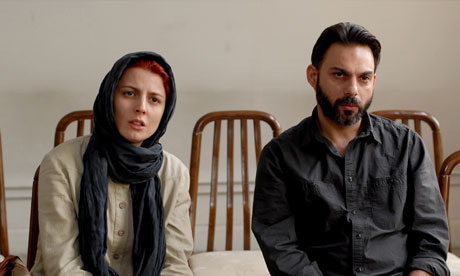
Here's a story from director Asghar Farhadi about life in today's Tehran. It begins as a story about a couple who have what you might call irreconcilable differences. The wife, Simin (Leila Hatami), wants a divorce, not because her husband, Nader (Peyman Moadi), is a bad man--on the contrary, he's modern, more or less secular, and views a woman as his equal--but because she wants to raise their teenage daughter, Termeh (Sarina Farhadi), outside of Iran. He refuses to leave because he must care for his father (Ali-Asghar Shahbazi), who has Alzheimer's. The judge refuses to grant the divorce.
Like "The Descendants", this is a film about a famly torn asunder and a teenage girl caught in the middle, but "A Separation" takes place (and was itself made) in a culture that is in many ways the inverse of ours. Sarina Farhadi can't go about in an itsy-bitsy bikini like Shailene Woodley, nor is it available to her (or for that matter even thinkable to her) to tell her parents to go fuck off. One of the themes of "The Descendants" is that very American lack of respect for authority--rather a healthy aspect of American culture in my view, certainly the feature that distinguishes the aspects of our culture I like the most from those I like the least--but the Muslim culture we see here seems to carry rather an implied question for American audiences: when does a sort of generalized lack of respect carry over into lack of respect for yourself?
Nader hires a devout woman, Razieh (Sareh Bayat), to care for his father; she has a hotheaded fundamentalist husband, Hodjat (Shahab Hosseini), who's always in some kind of a scrape with his creditors. Razieh always has her little girl in tow, and her expressions provide some of the movie's most heartbreaking moments. It turns out Razieh is pregnant, though it's hard to tell because of the garments in which she's draped.
In a moment of justifiable anger everything changes: the usually gentle Nader has an altercation with Razieh. Suddenly both legal and physical threats loom, with the secular couple on one side (though not exactly brought together) and the devout couple on the other.
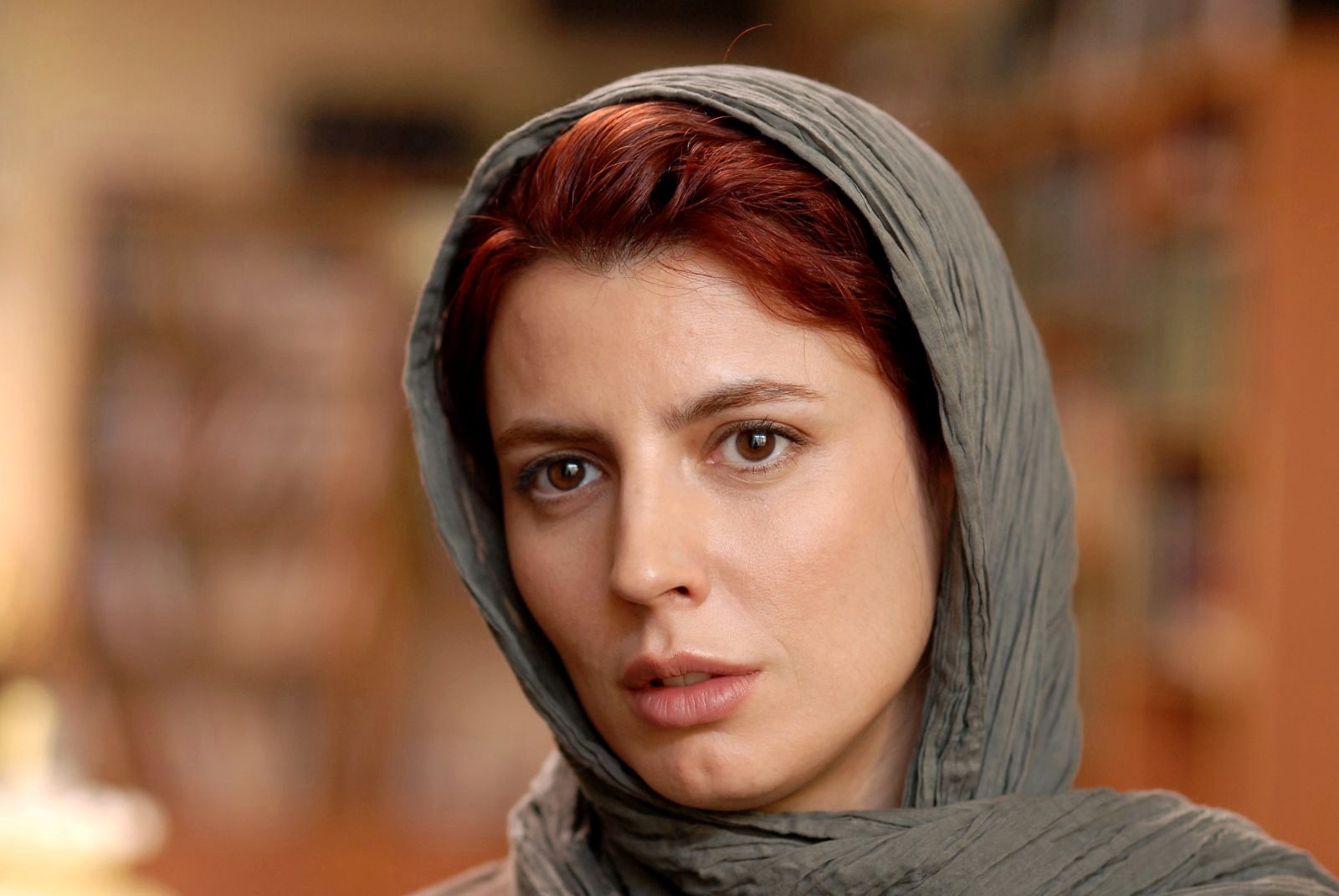
The charges leveled against Nader are very, very serious. Here again we get a look at the Iranian judicial system, which seems to consist of a judge who can barely be bothered to look up from his books listening as both sides plead their case. (Of course, the idea of an impersonal bureaucracy will not be altogether foreign to American viewers).
"A Separation" is on one level about class. As in this country, there is a strong correlation between religion, education and class. If anything, Nader seems conscious that he not use privilege and class bias against these poor religious people: at many points he actually goes out of his way to give his accusers, Razieh and Hodjat, a break.
And as in any culture, religious fundamentalists are scary, because irrational people are dangerous. Hodjat seems quite capable of hurting Nader and even his family in his quest for justice. When he shows up wielding a Koran at Termeh's school and insists that her teacher, a witness in the case, swear on it, it is a matter that no one takes lightly. And Hodjat finally gets the judge's attention when, frustrated that the man refuses to automatically rule in his favor, he answers the judge's suggestion that he calm down by suggesting to the judge that he'd better pray to God. Now he has the judge's full attention: for the first time he looks up and directly into Hodjat's eyes. That was a serious thing to say, and an insulting one. He immediately orders Hodjat be thrown in the clink.
But even Hodjat is not a caricature. At one point Nader suspects that Razieh's loss was actually suffered at her husband's hands. Maybe it was. He's certainly shown a propensity for violence and a self-destructive streak. But when Hodjat asks him, Why do you people always think we beat our wives as though they are animals?, you can see in his eyes that he is genuinely wounded.
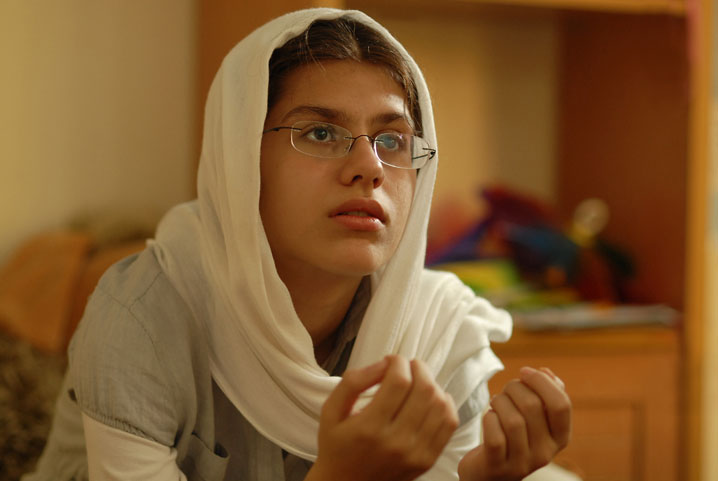
Farhadi gives us imagery that emphasizes everyone's apartness. People are often divided in the image by a door frame or window panels. He stages an early scene in the apartment so that the camera moves constantly through the space; while Simin and Nader are constantly in motion, they are never together. It's like a ballet. Termeh watches from her desk; she can see everyone through the windows, gazing across the central courtyard the apartment wraps around.
And the way Farhadi stages the altercation is also subtle. He shows us enough so we can see that something happened, but he does not show us all of it. What really happened is in play. Who's at fault? Everybody and nobody.

We recognize that kind of situation. At a time when Israel prepares to bomb Iran at least partly in our name, it's especially important that American audiences see "A Separation", which does not validate the view you came in with but shakes you up, makes you feel what these people feel, and shows you that one truth that all good art ultimately reflects: things are nothing if not complicated.
Rating: ****1/2
--February 10, 2012
Key to ratings:
***** (essential viewing)
**** (excellent)
*** (worth a look)
** (forgettable)
* (rubbish!!)


 Scott Pfeiffer
Scott Pfeiffer
